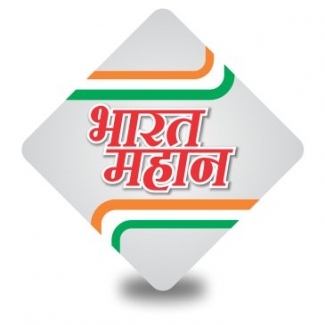
Startups spread across 56 diversified sectors
More than 4500 startups recognized under emerging technologies such as IOT, Robotics, AI and Analytics etc
Startups and the entire technology ecosystem are the engines of growth for any country. Recognizing this aspect, the Government has launched Startup India initiative on 16th January 2016 with an aim to build a stronger ecosystem for nurturing India’s startup culture that would further drive our economic growth, support entrepreneurship, and enable large-scale employment opportunities.
Sustained Government efforts in this direction have resulted in increasing the number of recognized Startups from 471 in 2016 to 72,993 in 2022 (as on 30th June 2022).
Further, DPIIT has recognized startups which are spread across 56 diversified sectors. More than 4,500 Startups have been recognized in sectors relating to emerging technologies such as Internet of Things (IoT), robotics, artificial intelligence, analytics, etc.
Furthermore, Department of Science and Technology (DST) had launched an umbrella programme called National Initiative for Developing and Harnessing Innovations (NIDHI) in year 2016 for nurturing ideas and innovations (knowledge-based and technology-driven) into successful startups. Under NIDHI, different programs range from providing fellowships to the students opting for entrepreneurship through Entrepreneurs-In-Residence (EIR) Program, Promoting and Accelerating Young and Aspiring Innovators and Startups (PRAYAS) program by providing financial support for converting ideas into prototypes, availability of early stage Seed support to incubated ventures, providing mentoring and investment readiness support through Accelerators, and creating Centres of Excellence (CoE) in incubation.
To promote innovations in biotechnology sector, the Department of Biotechnology, through Biotechnology Industry Research Assistance Council (BIRAC), supports and nurtures startups in the Biotechnology sector. The major schemes are BioNEST Scheme (Bio incubators Nurturing Entrepreneurship for Scaling Technologies) and Biotechnology Ignition Grant (BIG) schemes.
Additionally, in order to promote innovation and agripreneurship by providing financial support and nurturing the incubation ecosystem Department of Agriculture & Farmers Welfare under the Rashtriya Krishi Vikas Yojana- Remunerative Approaches for Agriculture and Allied Sector Rejuvenation (RKVY-RAFTAAR) scheme has launched “Innovation and Agri-entrepreneur development” programme, as a component. Startups under the programme are taking up projects in various fields of agriculture and allied sectors like Agro-processing, Food Technology & Value Addition, Artificial Intelligence (AI), Internet of Things (IoT), Information & Communication Technology (ICT), Block Chain Technology (BCT), precision farming and Digital agriculture, and Block Chain technology among others.
The Innovations for Defence Excellence(iDEX) was launched by the Department of Defense Production, Ministry of Defense, with the aim to achieve self-reliance and foster innovation and technology development in Defense and Aerospace by engaging Industries, R&D institutes and academia and provide them grants to carry out R&D. The startups receive upto Rs 1.50 Crore as grant for development of innovative prototypes. They also receive enormous support from iDEX’s partner Incubators at IITs, IIMs and other private incubators spread all over the country.
Under the Atal Innovation Mission, the Government has set up Atal Incubation Centres (AIC) to incubate startups in various sectors. It has also launched Atal New India Challenge (ANIC) program to directly aid startups with technology-based innovations that solve sectoral challenges of national importance and societal relevance.
The Government has also operationalized 26 Centres of Excellence (CoEs) in diverse areas of national interest for driving self- sufficiency and creating capabilities to capture new and emerging technology areas. These domain specific CoEs are being established pan India with the participation of the Central Government, Software Technology Parks of India (STPI), State Government(s), industry partnership and venture capital firms. These CoEs act as important enablers to promote innovation in emerging technologies.
Further, Technology Incubation and Development of Entrepreneurs (TIDE) Scheme, launched by Ministry of Electronics and Information Technology, has a multi-pronged approach in diverse areas of electronics, information and communications technology and management. It aims to assist institutions of higher learning to strengthen their technology incubation centers and enable young entrepreneurs to initiate technology startup companies for commercial exploitation of technologies developed by them.
In addition to the above, the various measures undertaken by the Government under Startup India initiative are at Annexure-I.
ANNEXURE-I
Programs Launched under Startup India initiative
The details of various programs undertaken by the Government to promote startups under Startup India initiative across the country are as under:
- Startup India Action Plan: An Action Plan for Startup India was unveiled on 16th January 2016. The Action Plan comprises of 19 action items spanning across areas such as “Simplification and handholding”, “Funding support and incentives” and “Industry- academia partnership and incubation”. The Action Plan laid the foundation of Government support, schemes and incentives envisaged to create a vibrant startup ecosystem in the country.
- Fund of Funds for Startups (FFS) Scheme: The Government has established FFS with corpus of Rs. 10,000 crore, to meet the funding needs of startups. DPIIT is the monitoring agency and Small Industries Development Bank of India (SIDBI) is the operating agency for FFS. The total corpus of Rs. 10,000 crore is envisaged to be provided over the 14th and 15th Finance Commission cycles based on progress of the scheme and availability of funds. It has not only made capital available for startups at early stage, seed stage and growth stage but also played a catalytic role in terms of facilitating raising of domestic capital, reducing dependence on foreign capital and encouraging home grown and new venture capital funds.
- Regulatory Reforms: 52 regulatory reforms have been undertaken by the Government since 2016 to enhance ease of doing business, ease of raising capital and reduce compliance burden for the startup ecosystem.
- Support for Intellectual Property Protection: Startups are eligible for fast-tracked patent application examination and disposal. The Government launched Start-ups Intellectual Property Protection (SIPP) which facilitates the startups to file applications for patents, designs and trademarks through registered facilitators in appropriate IP offices by paying only the statutory fees. Facilitators under this Scheme are responsible for providing general advisory on different IPRs, and information on protecting and promoting IPRs in other countries. The Government bears the entire fees of the facilitators for any number of patents, trademark or designs, and startups only bear the cost of the statutory fees payable. Startups are provided with an 80% rebate in filing of patents and 50% rebate in filling of trademark vis-a-vis other companies.
- Self-Certification under Labour and Environmental laws: Startups are allowed to self-certify their compliance under 9 Labour and 3 Environment laws for a period of 3 to 5 years from the date of incorporation.
- Income Tax Exemption for 3 years: Startups incorporated on or after 1st April 2016 Ministerial Board Certificate are exempted from income-tax for a period of 3 consecutive years out of 10 years since incorporation.
- International Market Access to Indian Startups: One of the key objectives under the Startup India initiative is to help connect Indian startup ecosystem to global startup ecosystems through various engagement models. This has been done though international Government to Government partnerships, participation in international forums and hosting of global events. Startup India has launched bridges with over 15 countries (Brazil, Sweden, Russia, Portugal, UK, Finland, Netherlands, Singapore, Israel, Japan, South Korea, Canada, Croatia, Qatar and UAE) that provides a soft- landing platform for startups from the partner nations and aid in promoting cross collaboration.
- Faster Exit for Startups: The Government has notified Startups as ‘fast track firms’ enabling them to wind up operations within 90 days vis-a-vis 180 days for other companies.
- Startup India Hub: The Government launched a Startup India Online Hub on 19th June 2017 which is one of its kind online platform for all stakeholders of the entrepreneurial ecosystem in India to discover, connect and engage with each other. The Online Hub hosts Startups, Investors, Funds, Mentors, Academic Institutions, Incubators, Accelerators, Corporates, Government Bodies and more.
- Exemption for the Purpose Of Clause (VII)(b) of Sub-section (2) of Section 56 of the Act (2019): A DPIIT recognized startup is eligible for exemption from the provisions of section 56(2)(viib) of the Income Tax Act.
- Startup India Showcase: Startup India Showcase is an online discovery platform for the most promising startups of the country chosen through various programs for startups exhibited in a form of virtual profiles. The startups showcased on the platform have distinctly emerged as the best in their fields. These innovations span across various cutting-edge sectors such as Fintech, EntrepriseTech, Social Impact, HealthTech, EdTech, among others. These startups are solving critical problems and have shown exceptional innovation in their respective sectors. Ecosystem stakeholders have nurtured and supported these startups, thereby validating their presence on this platform.
- National Startup Advisory Council: The Government in January 2020 notified constitution of the National Startup Advisory Council to advise the Government on measures needed to build a strong ecosystem for nurturing innovation and startups in the country to drive sustainable economic growth and generate large scale employment opportunities. Besides the ex-officio members, the council has a number of non-official members, representing various stakeholders from the startup ecosystem.
- Startup India: The Way Ahead: Startup India: The Way Ahead at 5 years celebration of Startup India was unveiled on 16th January 2021 which includes actionable plans for promotion of ease of doing business for startups, greater role of technology in executing various reforms, building capacities of stakeholders and enabling a digital Aatmanirbhar Bharat.
- Startup India Seed Fund Scheme (SISFS): Easy availability of capital is essential for entrepreneurs at the early stages of growth of an enterprise. The capital required at this stage often presents a make-or-break situation for startups with good business ideas. The Scheme aims to provide financial assistance to startups for proof of concept, prototype development, product trials, market entry and commercialization. Rs. 945 crore has been sanctioned under the SISFS Scheme for period of 4 years starting from 2021-22.
This information was given by the Minister of State in the Ministry of Commerce and Industry, Shri Som Parkash, in a written reply in the Rajya Sabha on Friday.











